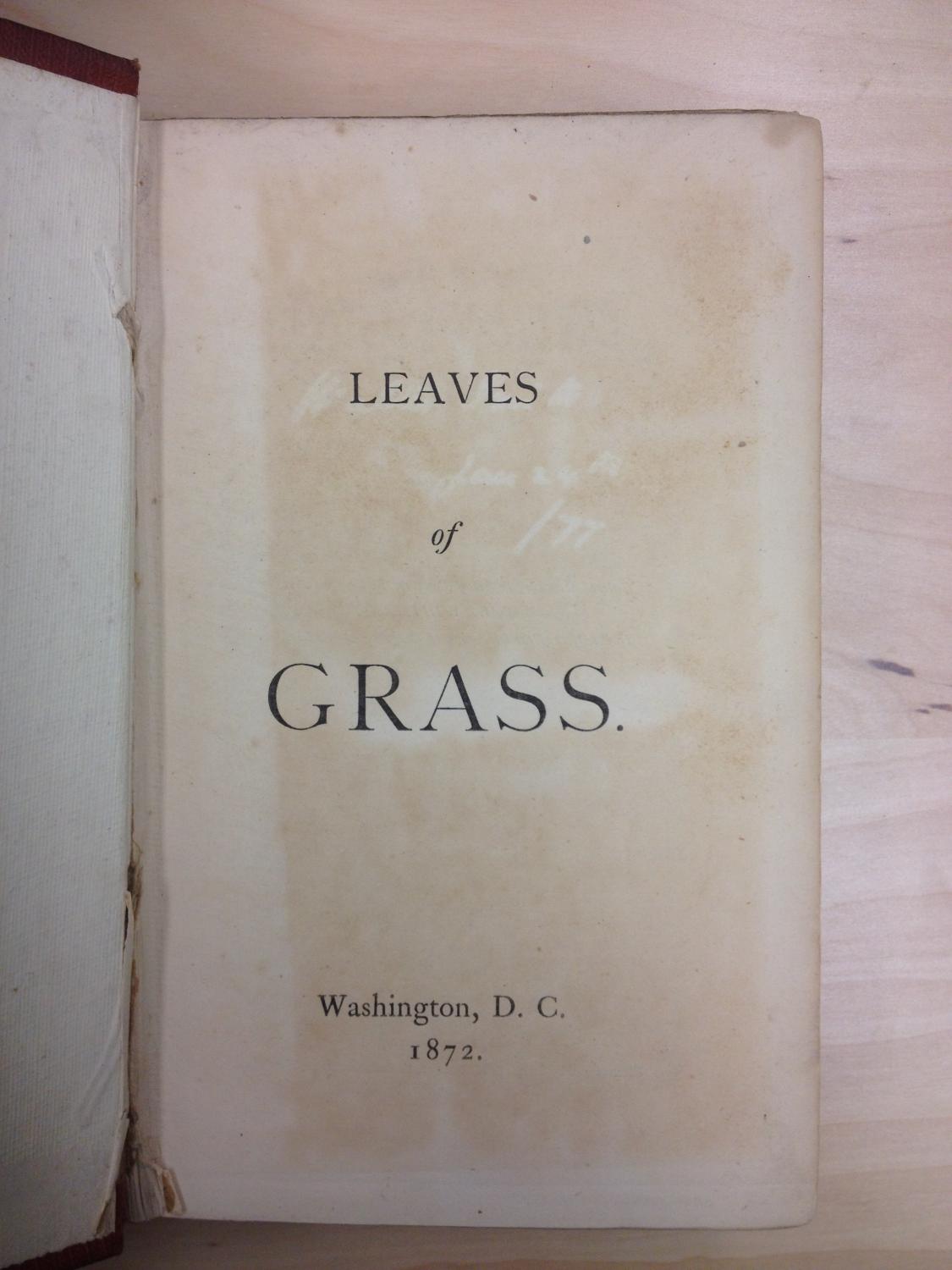

McClatchy calls Walt Whitman’s vision "mystical" and "too uncanny to have resulted from mere literary musings." McClatchy writes, "No one has been able to adequately describe how Walter Whitman came to write his book. In a celebratory article in the New York Sun, poet J. On July 4, 2005, we will celebrate the 150th anniversary of what is possibly the greatest book of American poetry ever written.

Whitman is a classic American poet and I'm glad I finally took the time to read this seminal work.Download the entire Walt Whitman Reading Guide as an Adobe Acrobat pdf file. My favorite of his poems will always be "Song of the Open Road" and "When Lilacs Last in the Dooryard Bloomed." I found a few more I really enjoy upon completion of this book though: "A Clear Midnight," "Out of May's Shows Selected," "The Voice of the Rain," and "A Prairie Sunset." I enjoyed seeing the evolution of his writing as his life progressed, especially since he kept adding on to Leaves of Grass every so often. Whitman will never be one of my favorite poets, but he certainly excelled at his craft. But I've always thought that poetry was meant to be savored a little at a time. He does tend to get repetitive after a while, so I certainly wasn't able to read this in one sitting. I'm just going to say it: Walt Whitman was the King of List Poems. Reading that one, plus Drum-Taps and Sequel to Drum-Taps (small poetry collections written during the Civil War and folded into later editions of Leaves of Grass), would have given me the background I needed for Voices in the Dead House, rather than trying to read the entire, huge final edition. Given that the book that inspired me to read Leaves of Grass was set in December 1862 and January 1863, what I *should* have read was the 1860-61 edition, the third of many, as Whitman constantly added, deleted, and edited poems from the original 1855 edition. More enjoyable for me were shorter poems like " When I Heard the Learn'd Astronomer," “ Ethiopia Saluting the Colors,” and " O Captain! My Captain!" It sometimes seemed like he was simply stringing together bunches of proper nouns or synonyms, rather than using imagery. Most of Walt Whitman's free verse poems are way too long, in my opinion. I tried to read this book of poetry because it was mentioned so frequently in Voices in the Dead House, a book I read and reviewed for the LibraryThing Early Reviewers program.


 0 kommentar(er)
0 kommentar(er)
